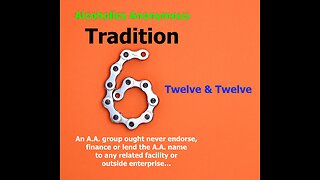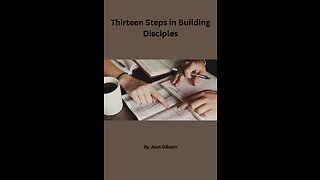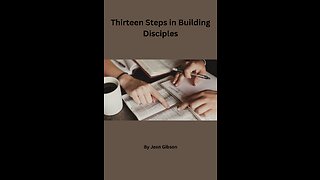AA - Tradition 7 - Twelve Steps & Twelve Traditions - Alcoholics Anonymous - Read Along – 12 & 12
Tradition 7 - Twelve Steps & Twelve Traditions - Alcoholics Anonymous - 12 & 12 Read Along
The Life-Changing Twelve Step Solution to Alcoholism
If you or someone you care about is suffering from addiction, there is help available.
Are you trying to stop drinking?
Do you think you may be an alcoholic?
Alcoholics Anonymous has been successful in saving millions of lives and families.
Local meetings can be found online.
Reach out if you would like assistance.
Spiritual principles helping to live your best life without alcohol and drugs.
Recovery from unhealthy habits and creating solutions for a long happy and useful life.
Alcoholism doesn't have to be a death sentence.
Addiction can be fixed.
Interventions and sober coaching
Tradition Seven
“Every A.A. group ought to be fully self- supporting, declining outside contributions.”
SELF-SUPPORTING alcoholics? Who ever heard of such a thing? Yet we find that's what we have to be. This principle is telling evidence of the profound change that A.A. has wrought in all of us. Everybody knows that active alcoholics scream that they have no troubles money can't cure. Always, we've had our hands out. Time out of mind we've been dependent upon somebody, usually money- wise. When a society composed entirely of alcoholics says it's going to pay its bills, that's really news.
Probably no A.A. Tradition had the labor pains this one did. In early times, we were all broke. When you add to this the habitual supposition that people ought to give money to alcoholics trying to stay sober, it can be understood why we thought we deserved a pile of folding money. What great things A.A. would be able to do with it! But oddly enough, people who had money thought otherwise. They figured that it was high time we now—sober—paid our own way. So our Fellowship stayed poor because it had to.
There was another reason for our collective poverty. It was soon apparent that while alcoholics would spend lavishly on Twelfth Step cases, they had a terrific aversion to dropping money into a meeting-place hat for group purposes. We were astounded to find that we were as tight as the bark on a tree. So A.A., the movement, started and stayed broke, while its individual members waxed prosperous.
Alcoholics are certainly all-or-nothing people. Our re- actions to money prove this. As A.A. emerged from its infancy into adolescence, we swung from the idea that we needed vast sums of money to the notion that A.A. shouldn't have any. On every lip were the words “You can't mix A.A. and money. We shall have to separate the spiritual from the material.” We took this violent new tack because here and there members had tried to make money out of their A.A. connections, and we feared we'd be exploited. Now and then, grateful benefactors had endowed clubhouses, and as a result there was sometimes outside interference in our affairs. We had been presented with a hospital, and almost immediately the donor's son became its principal patient and would-be manager. One A.A. group was given five thousand dollars to do with what it would. The hassle over that chunk of money played havoc for years. Frightened by these complications, some groups refused to have a cent in their treasuries.
Despite these misgivings, we had to recognize the fact that A.A. had to function. Meeting places cost something. To save whole areas from turmoil, small offices had to be set up, telephones installed, and a few full-time secretaries hired. Over many protests, these things were accomplished. We saw that if they weren't, the man coming in the door couldn't get a break. These simple services would require small sums of money which we could and would pay ourselves.
Then our trustees wrote a bright page of A.A. history. They declared for the principle that A.A. must always stay poor. Bare running expenses plus a prudent reserve would henceforth be the Foundation's financial policy. Difficult as it was, they officially declined that ten thousand dollars, and adopted a formal, airtight resolution that all such future gifts would be similarly declined. At that moment, we believe, the principle of corporate poverty was firmly and finally embedded in A.A. tradition.
When these facts were printed, there was a profound re- action. To people familiar with endless drives for charitable funds, A.A. presented a strange and refreshing spectacle. Approving editorials here and abroad generated a wave of confidence in the integrity of Alcoholics Anonymous. They pointed out that the irresponsible had become responsible, and that by making financial independence part of its tradition, Alcoholics Anonymous had revived an ideal that its era had almost forgotten.
-
 5:44
5:44
RecoveredNotCured
1 year agoAA - Tradition 10 - Twelve Steps & Twelve Traditions - Alcoholics Anonymous - Read Along – 12 & 12
93 -
 7:27
7:27
RecoveredNotCured
1 year agoAA - Tradition 6 - Twelve Steps & Twelve Traditions - Alcoholics Anonymous - Read Along – 12 & 12
60 -
 3:48
3:48
Just For Today - Recovery and Sobriety
6 months agoAA Daily Readings 12-30-23
73 -
 4:28
4:28
Just For Today - Recovery and Sobriety
6 months agoAA Daily Readings 01-04-24
52 -
 3:29
3:29
Just For Today - Recovery and Sobriety
6 months agoAA Daily Readings 12-28-23
90 -
 32:50
32:50
The Book of the true Life
1 year agoInner Silence & Signs of the Second Coming of Christ ❤️ The Book of the true Life Teaching 22 / 366
5191 -
 4:11
4:11
Just For Today - Recovery and Sobriety
6 months agoAA Daily Readings 01-03-24
135 -
 4:16
4:16
Christian Writings
1 year agoThirteen Steps in Building Disciples, Step 12: Worship
41 -
 5:51
5:51
Christian Writings
1 year agoThirteen Steps in Building Disciples, Step 1: Follow Up
31 -
 7:08
7:08
younglightworker22
6 months agoMessages from Ann & the Angels - 01/06/2024 • Pie and Angels
83